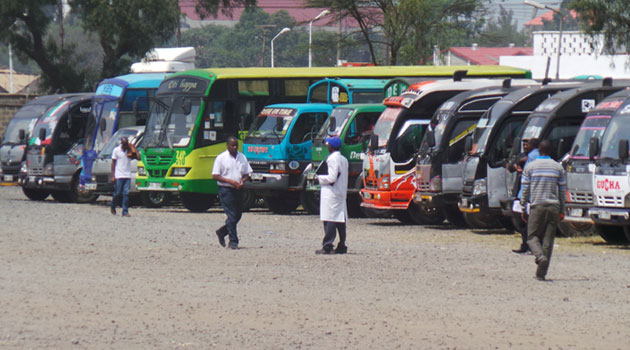
Public Service Vehicles now have only two weeks to adapt to the famous Michuki rules.
A joint statement by the Ministries of Transport and Interior directed all Public Service Vehicles be fitted with speed governors, safety belts and the continuous yellow line or prepare to face the law.
Public Service Vehicle conductors will also be required to wear uniform and prominently display their photos as prescribed by the law.
“Therefore, effective Monday ,12 November 2018,any PSV vehicle, drivers, SACCOs/Transport companies, passengers and other relevant parties that fail to comply with the provisions of the NTSA Act and the Traffic Act will be firmly dealt with the law” read part of the statement.
But why are these forgotten rules coming back looking inevitable?
The statement follows the increase in accidents involving PSVs across the country with the recent one in Kericho where more than 50 lives were lost.
The two Cabinet Secretaries have stated that the accidents are as a result of failing to follow laws governing traffic management.
This is also in a move to find a long lasting solution on the rogue of the city matatus.

Dr Fred Matiang’i had promised to bring sanity to the roads and find a “lasting solution” to road carnage.
Matatus in major towns are currently controlled by unruly gangs, and criminal elements who masquerade as route controllers and who demand cash from matatu crews depending on the number of trips each vehicle makes in a day.
All this happens in the full glare of traffic and regular police who turn a blind eye on matatus and buses flouting traffic rules — in a network of sleaze and palm greasing that goes up the echelons of the police service.
Cleaning out the thugs who have made matatus a law unto themselves will not be easy; the cartels are deeply embedded in the police, the criminal underworld and, in some cases, politics.

Matatu owners have, over the years, said they are forced to pay bribes to both the cartels and the police in order to stay in business.
At the moment, Kenya has more than 200,000 registered public service vehicles with Nairobi alone having slightly above 20,000 such vehicles run through a myriad of limited companies and Saccos — an experiment that failed to bring sanity to the industry since its introduction in 2013 when new rules locked out individual PSV owners.
The matatus, according to some insiders, pay an estimated Sh50 billion a year as bribes to stay on the roads. It is this loot that has turned most police officers into millionaires, despite their meagre earnings.

The government will also target all body builders who fail to comply with the new vehicle body structure. This year, a senior NTSA official was quoted as saying that only 322 matatus on Kenyan roads had complied with the body structure standard — which will now be enforced.
While the matatu industry ought to be lucrative, it is estimated to lose Sh50 billion a year to the organised criminal gangs, rogue traffic police officers, county askaris and touts.